Leigh Brackett, J.R.R. Tolkien, and Appendix N: Advanced Readings in D&D
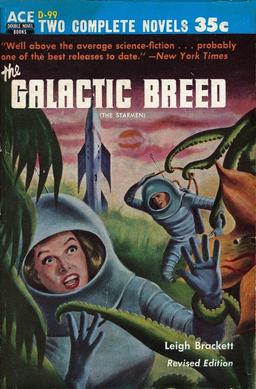 And so we come to the end of our extended journey through Gygax’s Appendix N, at the hands of our intrepid guides Tim Callahan and Mordicai Knode at Tor.com.
And so we come to the end of our extended journey through Gygax’s Appendix N, at the hands of our intrepid guides Tim Callahan and Mordicai Knode at Tor.com.
We haven’t always agreed with the opinions of Messieurs Callahan and Knode. But that’s okay. More than okay, really… what’s the point of following along with a literary survey if we don’t get to pound the table occasionally and shout “You lunkheads!” Really, the primary pleasure we old-timers get these days is disagreeing with self-proclaimed experts. Loudly, and at length.
But overall I think Callahan and Knode, the Lewis and Clark of Appendix N, have done a fine job. They’ve surveyed every entry in Gary Gygax’s original list of authors who influenced Dungeons and Dragons, just as they promised when they set out nine months ago. Along the way, they’ve shared their opinions — sometimes as informed experts, sometimes as newbies coming to the work of the masters for the first time.
And at every stop, they’ve been honest with us on whether or not the books spoke to them as modern readers. I don’t think we can ask for anything more than that.
I’m going to miss following along with Tim and Mordicai. Whether I agreed with them or not — nodding along with “Yup, yer darn tootin’,” or banging my head on the table and cursing every reader born after 1990 — they were always entertaining, enlightening, and frequently very funny.
But we still have two last articles to examine: Mordicai’s appreciation of the grand old lady of science fantasy, Leigh Brackett, and Mordicai and Tim’s wrap-up of the entire series, their salute to J.R.R. Tolkien. Let’s see if these last two pieces bring more nodding, or table-banging.
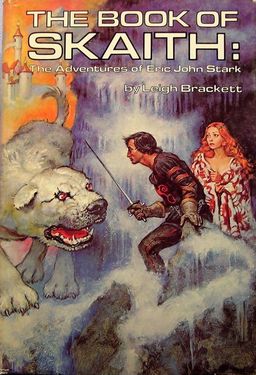 Mordicai chose to appraise Brackett with her 1951 Planet Stories novella The Black Amazon of Mars, which I think was a fine choice. He seems to think so too:
Mordicai chose to appraise Brackett with her 1951 Planet Stories novella The Black Amazon of Mars, which I think was a fine choice. He seems to think so too:
[The Empire Strikes Back] is what, I suspect, brings a lot of modern readers to Leigh Brackett, and you know, that is actually fairly on point, from what I can tell; her fiction has magic swords, wizards, spaceships, bounty hunters… enough that you can pretty easily draw a line from here to there. If that isn’t your cup of tea, her hardboiled mystery repertoire includes gems like The Big Sleep, so whichever your preference, she’s got you covered…
I know I have a tendency to describe things by way of anachronistic mash-up, but this time it really fits. Stark is Space Tarzan, and in The Black Amazon of Mars, he’s Space Tarzan on Robert E. Howard’s Barsoom. It really is quite the love letter to Edgar Rice Burroughs and Robert E. Howard, but it isn’t just a pastiche; Brackett brings her own worldbuilding to bear on it.
I was pleased to see Mordicai pick up on one of my favorite aspects of Brackett: her gorgeously crafted, adventure-filled settings. Perfectly suited, as he notes, for Dungeons and Dragons inspiration.
In fact, I’d say her “Solar System” is quite the campaign setting; stories might have different plots or histories or characters, but the planets and the key flora and fauna remain the same. I admire that, personally; I think the best thing about a well-developed setting is the verisimilitude that a cogent world brings, and that frees you to tell modular stories, tales in a world I accept as real but that don’t necessarily need to be linked by a single saga.
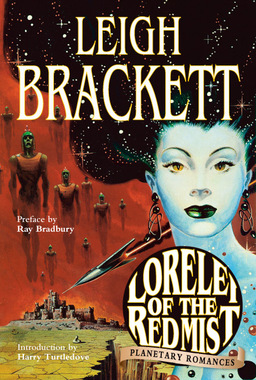 Finally, Mordicai finds much in Brackett’s prose “that likely enchanted” D&D author Gary Gygax.
Finally, Mordicai finds much in Brackett’s prose “that likely enchanted” D&D author Gary Gygax.
When Stark puts the jewel to his head and is filled with an alien mind, I got the impression that the author knew just what I mean. There are plenty of other flourishes that likely enchanted Gary Gygax. Brackett is very liberal with the obscure vocabulary; I don’t even mean “relatively” obscure, I mean she goes all out. She stumped me a couple of times, and I bet she’d stump you, too. Then there are the few pseudo-scientific pieces of techno-magic — a cold sphere and a heat sphere that are half based on microwaves and half based on, I don’t know, oppositional elementalism — that have a very “dungeon logic” feel. There is a vast ice dungeon, accessible via a ruined tower… doesn’t that sound Dungeons and Dragons?
We’ve paid a lot of attention to Leigh Brackett at Black Gate over the years. I’m not going to list all of the articles, but here are a few of the highlights:
Leigh Brackett: American Writer, by Howard Andrew Jones
Masterpiece: The Sword of Rhiannon by Leigh Brackett by Ryan Harvey
Swordsmen in the Sky by Charles Saunders
A Bout of Aboutness: Urban Fantasy and Sword-and-Planet by James Enge
An Interview With Paizo publisher Erik Mona by Howard Andrew Jones
Stephen Haffner has produced three glorious volumes of her collected pulp tales: Martian Quest: The Early Brackett (2002), Lorelei of the Red Mist: Planetary Romances (2007), and Shannach – The Last: Farewell to Mars (2011). I recommend these highly; find ordering information at Stephen’s website.
For completists, there’s also Stark and the Star Kings, written with her husband Edmond Hamilton, in which her hero Eric John Stark meets Hamilton’s Star Kings.
Read Mordicai ‘s complete article here.
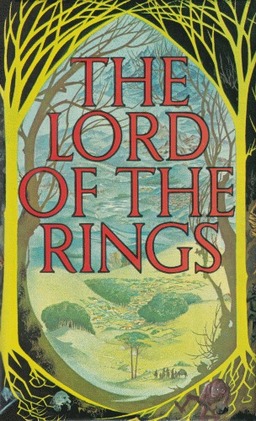 Tim and Mordicai bring the entire series to a fine close with their 28th and final entry, on J.R.R. Tolkien. While Gygax enjoyed The Hobbit, it’s no secret he was not a fan of The Lord of the Rings, so the relationship between D&D and the most important fantasy book of the 20th Century has always been a bit problematic.
Tim and Mordicai bring the entire series to a fine close with their 28th and final entry, on J.R.R. Tolkien. While Gygax enjoyed The Hobbit, it’s no secret he was not a fan of The Lord of the Rings, so the relationship between D&D and the most important fantasy book of the 20th Century has always been a bit problematic.
Here’s Tim, addressing the issue head on:
We had to bring this reading project to a close with the most epic of all fantasy epics, the most influential of all Appendix N novels, the big hulking oliphant in the room, Professor J. R. R. Tolkien’s The Lord of the Rings. Perhaps you’ve heard of it?
But in talking about The Lord of the Rings — and I do certainly want to talk about this book, because I love the heck out of it, and I didn’t realize how much I loved it until I reread it recently — we also have to talk about the other oliphant in the room: that Gary Gygax didn’t much like Tolkien’s stuff…
Those “hobbits” and “ents” and “balrogs” in the original D&D little brown books certainly implied a close connection between Middle-earth and the fantasy world of D&D adventure, but here’s what Gygax said about the whole thing a few years before he died: “I’m not a big Tolkien fan, though. I did love the movies, but I yawned through the books. I found them very droll and very dull. I still don’t give hoot about Hobbits…”
But, really, is that so bad? Isn’t D&D a lot like the Tolkien books, and isn’t The Lord of the Rings like a D&D super-adventure, even if Gygax had sweatier, grungier, pulpier, weirder things in mind?
I hadn’t realized Gygax was a fan of Peter Jackson’s film adaptions. But I suppose I shouldn’t be too surprised.
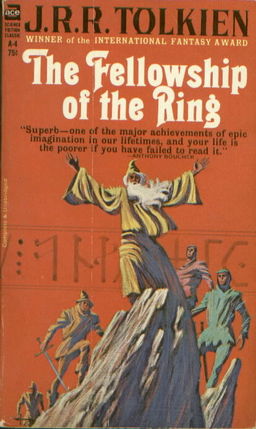 Mordicai takes a more cynical view of all this anti-Tolkien rhetoric.
Mordicai takes a more cynical view of all this anti-Tolkien rhetoric.
All due respect to the esteemed Mister Gygax, but I don’t believe any of that for a moment. I think, and this is very much just my personal speculation, that his public antipathy for Lord of the Rings stuff is just sour grapes from being burned by litigation from the Tolkien Estate. I mean, the game has freaking halflings in it. Which tells a vastly different version than not giving a “hoot about Hobbits…”
For real, treants, halflings, orcs, balors… heck, elves and dwarves, rangers, sentient magic artifacts — though filtered through Elric, spoofing the Ring — all of this stuff isn’t just on accident.
Good point. The Tolkien estate sued TSR over the appearance of Balrogs and Hobbits in First Edition D&D, and Gygax was forced to changed them to ‘Balor demons’ and ‘halfings.’ I don’t think it’s a stretch to imagine that left a sour taste in Gygax’s mouth for all things Tolkien.
Mordicai admits to being a fanboy early:
When I was a kid I was obsessed with Tolkien. I don’t mean “obsessed” the way people normally talk about their favorite books; I mean, I went into a deep hole. I read The Lord of the Rings for the first time in elementary school, really young, and then I just took off… I just read everything, all of the books, all of the Lost Tales, Morgoth’s Ring, Tolkien’s correspondences, just the monomaniacal mind of a tween, devoted completely to Lord of the Rings.
But surprisingly it’s Tim, a relatively newcomer to Lord of the Rings, who I think nails it.
I never finished the series. I dabbled in The Silmarillion, but even with The Lord of the Rings, I got to the second half of The Two Towers and just lost interest….
But I read the whole thing all the way through this past year — aren’t you so proud of me? — and here’s what struck me: The Lord of the Rings is far better written than almost everything else in Appendix N. It’s not just a seminal influence on the fantasy genre because it’s famous. It’s a seminal influence because it’s pretty damned great.
It’s impossible to deny that Tolkien is great at world-building — is anyone better? — but that’s not the only thing that makes The Lord of the Rings so remarkable. He also manages a delicate tonal balance between human-scale (or hobbit-scale) events and landscape-crushing battles. The story starts out as a provincial almost-comedy with ominous overtones and by the end it is the story of an entire multi-faceted culture and the great struggles between good and evil, but not in an abstract way, in a concrete, individual way. It’s vast and specific and none of the other authors in Appendix N pull it off like Tolkien does.
And we’ll end this series with some insightful words from Mordicai.
That isn’t all there is in Tolkien though; it isn’t politics or detail that make the story, it is that there is a heart to them, an ethos. Without being preachy… he manages to discuss some very big topics… At the end of the day, Tolkien has questions about freedom and tyranny, about sacrifice and responsibility, about justice and liberty…
All of which are questions you can and should be asking in your game. Sure, D&D is as much a game about hacking and slashing your way through monsters as it is anyone else, but I don’t think that precludes it from having ethical depths. Heck, it is a game that actually asks you to put your characters code of ethics on your character sheet, in the form of alignment. You have a chance to put yourself in someone else’s shoes, to ask big philosophical questions of the story and play out hypotheticals… I think questioning deeper issues is a natural extension of the game.
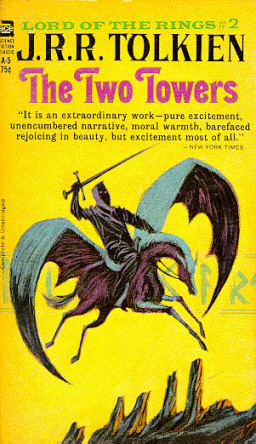 Read the complete article here.
Read the complete article here.
Here is the complete list of Mordicai and Tim’s Appendix N articles, as discussed here at Black Gate:
Leigh Brackett and J.R.R. Tolkien
Margaret St. Clair and Andrew Offutt
Lord Dunsany and Philip José Farmer
H.P. Lovecraft and A. Merritt
Manly Wade Wellman and Fletcher Pratt
Fredric Brown and Stanley G. Weinbaum
John Bellairs and Fred Saberhagen
Jack Williamson and Lin Carter
Andre Norton and Michael Moorcock
L. Sprague de Camp, Fletcher Pratt, and Gardner Fox
Roger Zelazny and August Derleth
Jack Vance
Fritz Leiber and Edgar Rice Burroughs
Sterling E. Lanier
Poul Anderson
Robert E. Howard
See the complete list at Tor.com here.
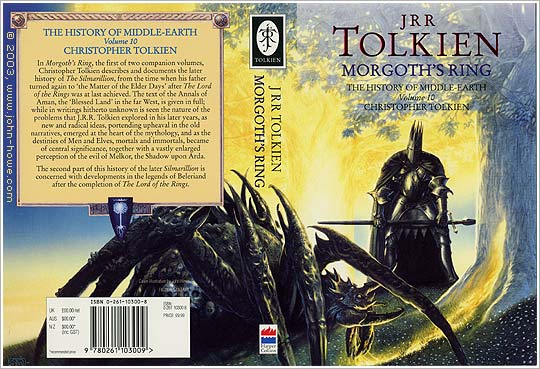
Point of clarity: Mordicai’s tribute to Brackett attributes The Big Sleep to her, and he must have been referring to the 1946 film. While she did co-write the screenplay (with William Faulkner!), the novel was, of course, penned by Raymond Chandler.
And the universe keeps telling me to read more Leigh Brackett. Fine, Universe. You win.
Reading over Callahan and Knode and their excellent series, what strikes me most (aside from the fact that everyone’s tastes and standards are different – someone stick up for Fletcher Pratt, please!) is how fortunate I was to come of age as a reader of fantastic fiction in the 70’s, when so much foundational fantasy and SF was in print. Where these whippersnappers have to say of so many books, “I had never heard of this one,” when I was spending my hoarded lunch money at the local bookstore, the shelves were overflowing with all this great stuff (thanks to Lin Carter, to a large degree) – at $1.25 a book or thereabouts! Sadly, so very much has fallen out of print now; it makes learning the genre’s history through its great writers that much more difficult, and is the cause of a problem that I find with a lot of SF and fantasy writing and criticism these days – a lack of perspective.
And Mr. Knode exits as he entered: wrong-footed. “All of which are questions you can and should be asking in your game.” Really? ‘Can’, sure. ‘Should’? Oh, so many responses to that unsolicited admonition. But I shall refrain.
emcgargle: I, for one, continue to appreciate Fletcher Pratt.
But, as John has noted, where’s the debate if we all agree?
[…] last looked at Leigh Brackett in the final installment of our Advanced Readings in D&D recap, Leigh Brackett, J.R.R. Tolkien, and Appendix N, Ryan Harvey’s review of another Planet Stories volume, Masterpiece: The Sword of Rhiannon by […]
[…] famously listed the fantasy writers and books that inspired him in Appendix N. We’ve had lengthy discussions on Appendix N, and its suitability as a jumping-off point for a fantasy collection, […]